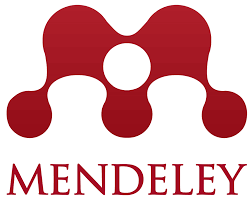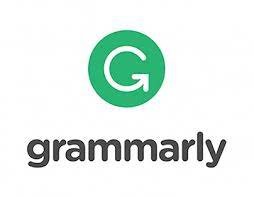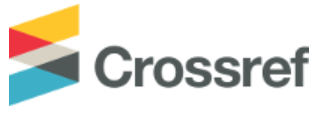Beliefs about Mathematics and Mathematics Assessment in Post-Secondary Education
Abstract
This paper studied the beliefs about mathematics, mathematics assessment, and written and oral mathematics assessment in post-secondary education from the mathematics professors’ perspectives. Seven mathematics professors and instructors were interviewed and asked to explain how they perceive mathematics and mathematics assessment and how they compare the oral exam to the written exam. Four out of seven mathematics professors and instructors were educated in Poland, Romania, Bosnia, and Ukraine, and they are currently teaching mathematics at a university in Canada. The other three professors were educated in Canada, Germany, and the United States, and they are currently teaching at a university in Germany. Five participants had previously experienced an oral examination in mathematics, while the other two had never been exposed to an oral examination in mathematics throughout their schooling. The results showed that similar beliefs about mathematics and mathematics assessment result in different beliefs about written and oral mathematics assessment.
Keywords
Full Text:
PDFReferences
Badger, J. (2010). Assessing reflective thinking: pre-service teachers’ and professors’ perceptions of an oral examination. Assessment in Education: Principles, Policy & Practice, 17(1), 77-89.
Beswick, K. (2007). Teachers’ beliefs that matter in secondary mathematics classrooms. Educational Studies in Mathematics, 65(1), 95–120.
Boedigheimer, R., Ghrist, M., Peterson, D., & Kallemyn, B. (2015). Individual Oral Exams in Mathematics Courses: 10 Years of Experience at the Air Force Academy. Primus, 25(2), 99-120.
Brown, S., & Knight, P. (1994). Assessing learners in higher education. London: Kogan Page.
Brown, G. (2008). Conceptions of assessment: Understanding what assessment means to teachers and students. Nova Science Publishers.
Cross, D. I. (2009). Alignment, cohesion, and change: Examining mathematics teachers’ belief structures and their influence on instructional practices. Journal of Mathematics Teacher Education, 12(5), 325-346.
De Vita, G., & Case, P. (2003). Rethinking the internationalisation agenda in UK higher education. Journal of further and higher education, 27(4), 383-398.
Dionne, J. (1984). The perception of mathematics among elementary school teachers. In J. M. Moser (Ed.), Proceedings of 6th Conference of the North American Chapter of the International Group for the Psychology of Mathematics Education (pp. 223–228). Madison (WI): University of Wisconsin: PME-NA.
Ernest, P. (1989). The impact of beliefs on the teaching of mathematics. Mathematics teaching: The state of the art, 249-254.
FairTest: The National Center for Fair and Open Testing. (2012, May 22). “What’s Wrong with Standardized Tests.” Taken from www.fairtest.org/facts/whatwron.htm. World Wide Web.
Forrest, G. M. (1985). Oral examinations. In T. Husen, & T. N. Postlethwaite (Eds.), The International Encyclopedia of Education (pp. 3688-3688). Oxford, England: Pergamon Press.
Fyhn, A. B. (2015). How a local oral examination considers affective aspects of knowing mathematics. In CERME 9-Ninth Congress of the European Society for Research in Mathematics Education (pp. 1174-1180).
Gold, B. (1999). Assessment Practices in Undergraduate Mathematics. Washington DC: Mathematical Association of America, pp. 143–145.
Green, T. F. (1971). The activities of teaching.
Handel, B. (2003). Teachers’ Mathematical Beliefs: A Review. The Mathematics Educator, 13(2), 47–57.
Henderson, J., Lloyd, P., & Scott, H. (2002). 'In the real world we're all put on the spot at some time or other, so you need to be prepared for it': an exploratory study of an oral method of assessing knowledge of mental health law. Social work education, 21(1), 91-103.
Hiebert, J., & Lefevre, P. (1986). Conceptual and procedural knowledge in mathematics: An introductory analysis. Conceptual and procedural knowledge: The case of mathematics, 2, 1-27.
Hounsell, D., Falchikov, N., Hounsell, J., Klampfleitner, M., Huxham, M., Thompson, K., & Blair, S. (2007). Innovative Assessment Across the Disciplines: An Analytical Review of the Literature. York: Higher Education Academy.
Hubbard, M. (1971). Measuring Medical Education. Philadelphia: Lea and Febiger.
Huxham, M., Campbell, F., & Westwood, J. (2012). Oral versus written assessments: a test of student performance and attitudes. Assessment & Evaluation in Higher Education, 37(1), 125-136.
Iannone, P., & Simpson, A. (2011). The summative assessment diet: how we assess in mathematics degrees. Teaching Mathematics and its Applications: An International Journal of the IMA, 30(4), 186-196.
Iannone, P., & Simpson, A. (2012). Oral assessment in mathematics: implementation and outcomes. Teaching Mathematics and Its Applications: An International Journal of the IMA, 31(4), 179-190.
Iannone, P., & Simpson, A. (2015). Students’ views of oral performance assessment in mathematics: straddling the ‘assessment of’ and ‘assessment for’ learning divide. Assessment & Evaluation in Higher Education, 40(7), 971-987.
Joughin, G. (1998). Dimensions of oral assessment. Assessment & Evaluation in Higher Education, 23(4), 367-378.
Joughin, G. (2007). Student conceptions of oral presentations. Studies in Higher Education, 32(3), 323-336.
Joughin, G. (2010). A short guide to oral assessment. Leeds Met Press in association with University of Wollongong.
Lianghuo, F., & Mei, Y. S. (2007). Integrating oral presentation into mathematics teaching and learning: An exploratory study with Singapore secondary students. The Montana Mathematics Enthusiast, Monograph, 3, 81-98.
Liljedahl, P. (2009). Teachers’ insights into the relationship between beliefs and practice. In J. Maasz & W. Schlöglmann (Eds.), Beliefs and attitudes in mathematics education: New research results (pp. 44–54). Rotterdam, The Netherlands: Sense Publishers.
Maasz, J. & Schlöglmann, W. (Eds.). (2009). Beliefs and attitudes in mathematics education: New research results. Rotterdam, The Netherlands: Sense Publishers.
Nelson, M. A. (2010). Oral assessments: Improving retention, grades, and understanding. PRIMUS, 21(1), 47-61.
Nor, H. N. H. M., & Shahrill, M. (2014, June). Incorporating the use of poster and oral presentations as an alternative assessment in the teaching of secondary mathematics. In Proceedings of the 2nd International Conference on Social Sciences Research (pp. 369-378). ICSSR 2014, WorldConferences. net Kota Kinabalu, Sabah, Malaysia.
Odafe, V. U. (2006). Oral examinations in college mathematics. PRIMUS, 15(3), 243-256.
Philipp, R. A. (2007). Mathematics teachers’ beliefs and affect. In F. Lester (Ed.), Handbook of research on mathematics teaching and learning (pp. 257–315). Charlotte, NC: Information Age Publishing.
Raymond, A. M. (1997). Inconsistency between a beginning elementary school teacher’s mathematics beliefs and teaching practice. Journal for Research in Mathematics Education, 28(5), 550–576.
Roecker, L. (2007). Using oral examination as a technique to assess student understanding and teaching effectiveness. Journal of Chemical Education, 84(10), 1663-1666.
Romagnano, L. (2001). The myth of objectivity in mathematics assessment. Mathematics Teacher, 94(1), 31-37.
Skemp, R. R. (1976). Relational understanding and instrumental understanding. Mathematics teaching, 77(1), 20-26.
Smith, M. L., & Fey, P. (2000). Validity and accountability in high-stakes testing. Journal of Teacher Education, 51(5), 334-344.
Stipek, D. J., Givvin, K. B., Salmon, J. M., & MacGyvers, V. L. (2001). Teachers’ beliefs and practices related to mathematics instruction. Teaching and Teacher Education, 17(2), 213–226.
Stray, C. (2001). The shift from oral to written examination: Cambridge and Oxford 1700–1900. Assessment in Education: Principles, Policy & Practice, 8(1), 33-50.
Suurtamm, C., Thompson, D. R., Kim, R. Y., Moreno, L. D., Sayac, N., Schukajlow, S., … Vos, P. (2016). Assessment in Mathematics Education. Springer. http://doi.org/10.1007/978-3-319-32394-7
Thompson, A. (1992). Teachers’ beliefs and conceptions: A synthesis of the research. In D. A. Grouws (Ed.), Handbook of research on mathematics teaching and learning (pp. 127–146). New York, NY: Macmillan.
Törner, G., & Grigutsch, S. (1994). Mathematische Weltbilder bei Studienanfängern – eine Erhebung. Journal für Mathematikdidaktik, 15(3/4), 211–252.
Videnovic, M. (2017a). Oral vs. written exams: what are we assessing in mathematics? Open Mathematical Education Notes, 7(1), 1-7.
Videnovic, M. (2017b). Evidential vs. non-evidential beliefs in case of oral assessments: A sequel. Open Mathematical Education Notes, 7(2), 43-47.
Vogt, W. P. (1999). Dictionary of Statistics and Methodology: A Nontechnical Guide for the Social Sciences, London: Sage.
Žalská, J. (2012). Mathematics teachers’ mathematical beliefs: A comprehensive review of international research. Scientia in Educatione, 3(1), 45–65.
DOI: https://doi.org/10.31002/ijome.v5i1.5363
Refbacks
- There are currently no refbacks.
Copyright (c) 2022 Indonesian Journal of Mathematics Education

This work is licensed under a Creative Commons Attribution-NonCommercial-ShareAlike 4.0 International License.

This work is licensed under a Creative Commons Attribution-NonCommercial-ShareAlike 4.0 International License.
Indexed by:
ISSN: 2654-3907 (print) | 2654-346X (online)
Jalan Kapten Suparman No.39, Magelang, Jawa Tengah, Indonesia 56116
Phone (0293) 364113 Fax. (0293) 362438
Website : http://jurnal.untidar.ac.id/index.php/ijome









